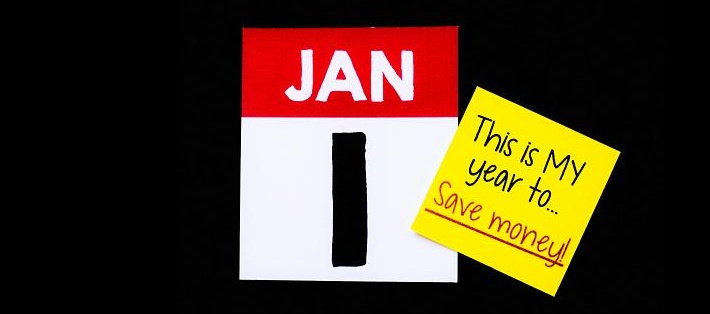
Taking Steps Toward Financial Improvement For The New Year
Q: I’d like to focus on improving my finances in 2020, but there are so many areas that need attention. Where do I start?
A: The start of a new year is a wonderful time to make important changes in your financial life. Lucky for you, you don’t have to go it alone. Lincoln SDA Credit Union will walk you through some financial improvements you can make this year and continue to guide you every step of the way.
We’ve broken down some of the most popular financial resolutions into concrete steps and outlined the ways Lincoln SDA Credit Union can help you implement each change into your life.
Build a budget
Why it’s crucial: Creating and sticking to a monthly budget will force you to be accountable for your spending while giving you a clear idea of your financial reality.
In 3 steps:
- Track your spending over three months.
- Using a spreadsheet, a pen and paper or a personal finance app like Mint, divide your expenses into categories, such as mortgage, groceries, etc. Use an average of the last three months to set a reasonable spending limit for each category.
- Going forward, track your spending and be sure to stick to your preset limits for each category.
If your budget reveals your monthly income doesn’t cover your expenses, or you find you’re overspending in any area, look for ways to cut back.
How Lincoln SDA Credit Union can help: Stop in at any time and we can help answer your questions to managing your money.
Get out of debt
Why it’s crucial: Carrying long-term debt can mean paying exorbitant amounts of interest for years on end. It can also devastate your credit score.
In 3 steps:
- Make a complete list of all your outstanding debts in order from smallest balance to largest.
- Review your monthly budget and look for ways to cut back. Alternatively, you can look for ways to increase your monthly income.
- Work on paying off your smallest debt with the money you trimmed from your budget, or with the extra income you’re pulling in. Once you’ve paid off that debt, move on to the second-smallest. Repeat until you’re completely debt-free.
How Lincoln SDA Credit Union can help: If you’re carrying multiple high-interest rate debts, consider taking out a personal loan to simply things. This way, you’ll only have one lower-interest loan payment each month. It may even reduce the total amount you’ll pay each month. Speak to a representative at Lincoln SDA Credit Union today to discuss this option.
Start saving
Why it’s crucial: According to the Federal Reserve, 40 percent of Americans can’t cover a $400 expense. Living without a safety net means a relatively small, unexpected expense can throw off your finances and force you into debt. Aside for paying for emergencies, savings can help fund your long-term plans, goals and dreams.
In 3 steps:
- Review your monthly budget to identify your biggest spending traps. Then, find ways to cut back, such as shopping with cash only, cancelling subscriptions you never use or initiating a “financial fast” one weekend each month, in which you spend no money.
- Use all money saved to open an emergency fund and a long-term savings fund at Lincoln SDA Credit Union. It’s best to focus primarily on your emergency fund until you have 3-6 months’ worth of living expenses stashed away.
- Set up an automatic monthly transfer from your Lincoln SDA Credit Union checking account to your Lincoln SDA Credit Union savings accounts so you never forget to feed your savings.
How Lincoln SDA Credit Union can help: Our savings accounts offer your money an excellent opportunity for growth. You can open an account today with an initial deposit as low as $25. Your funds will start growing immediately with a 0.15% dividend rate. Our Super Checking account earns 2.5% on your average checking balance up to $2,000. And a 3 year shares certificate can earn 1.75%. Contact us for details!
Maximize your retirement contributions
Why it’s crucial: Many workplaces offer to match 401(k) contributions. These contributions aren’t taxed and they come off your paycheck, which is taxed, making participation an excellent decision. Your 401(k) withdrawals will be taxed in the future, but the compound interest your fund will accumulate until then will more than offset this cost.
In 3 steps:
- Speak to an HR representative at your workplace to find out about your current 401(k) contributions.
- Identify how to best maximize your 401(k) contributions going forward.
- If you have any other retirement funds, such as an IRA or a Roth IRA, also review your contributions to determine if you are making the maximum funding allowed.
Your Turn: What are your financial resolutions this year? Share them with us in the comments.
